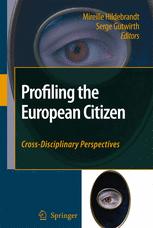

Most ebook files are in PDF format, so you can easily read them using various software such as Foxit Reader or directly on the Google Chrome browser.
Some ebook files are released by publishers in other formats such as .awz, .mobi, .epub, .fb2, etc. You may need to install specific software to read these formats on mobile/PC, such as Calibre.
Please read the tutorial at this link: https://ebookbell.com/faq
We offer FREE conversion to the popular formats you request; however, this may take some time. Therefore, right after payment, please email us, and we will try to provide the service as quickly as possible.
For some exceptional file formats or broken links (if any), please refrain from opening any disputes. Instead, email us first, and we will try to assist within a maximum of 6 hours.
EbookBell Team

5.0
28 reviewsIn the eyes of many, one of the most challenging problems of the information society is that we are faced with an ever expanding mass of information. Selection of the relevant bits of information seems to become more important than the retrieval of data as such: the information is all out there, but what it means and how we should act on it may be one of the big questions of the 21st century. If an information society is a society with an exponential proliferation of data, a knowledge society must be the one that has learned how to cope with this.
Profiling technologies seem to be one of the most promising technological means to create order in the chaos of proliferating data. In this volume a multifocal view will be developed to focus upon what profiling is, where it is applied and what may be the impact on democracy and rule of law. Based on the work done within the European Network of Excellence (NoE) on the Future of Identity in Information Society (FIDIS), a set of authors from different disciplinary backgrounds and jurisdictions share their understanding of profiling as a technology that may be preconditional for the future of our information society.